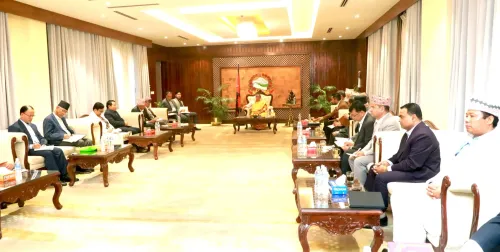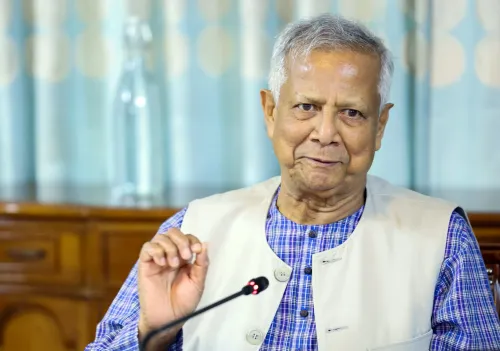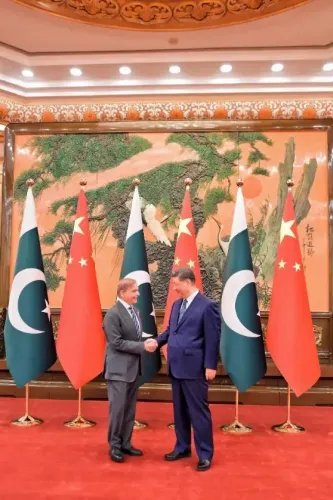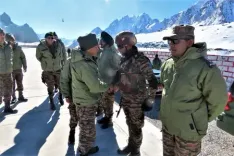Is Pakistan Failing to Meet US Strategic Benchmarks in Asia?
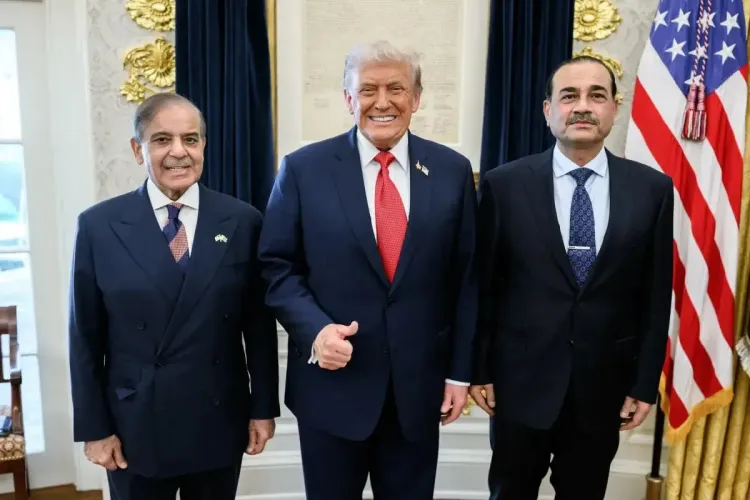
Synopsis
Key Takeaways
- Pakistan's military government struggles to meet US strategic criteria.
- The proposed Pasni port highlights Pakistan's attempt to attract US investment.
- The US is focusing on building relationships with democratic partners, particularly India.
- Pakistan's actions may inadvertently weaken trust with the US.
- Strategic patience is necessary for US engagement in South Asia.
Islamabad, Oct 21 (NationPress) Pakistan, a nuclear-capable state governed by a military-influenced civilian administration, heavily reliant on International Monetary Fund (IMF) bailouts and financial assistance from Saudi Arabia, fails to fulfill any of the criteria that shape the United States' strategy in Asia. According to a recent report, the US aims to partner with Asian nations that share common interests, values, and stability.
“The military leaders in Rawalpindi are adept at navigating relationships with China, the US, and the Gulf states for short-term benefits. What seems to be a ‘new chapter’ in US-Pakistan relations is actually another episode in a lengthy saga of letdowns. Strategic patience, rather than hasty agreements, is essential for Washington in South Asia,” the report from ‘One World Outlook’ elaborated.
“America’s optimal choice isn’t a transactional ally like Pakistan; it’s a democratic partner in India, whose enduring alignment will shape the power dynamics in the Indo-Pacific region,” it further stated.
The report highlights that Pakistan's latest initiative proposes a new billion-dollar port at Pasni in the Gwadar district of Balochistan, located on the Arabian Sea, providing access to rare earths and essential minerals.
It indicated that the port, situated just 70 miles from China’s Gwadar facility and 100 miles from Iran, would serve as an excellent vantage point for Washington to observe both adversaries.
This strategy is calculated, with Pakistan’s army chief, Asim Munir, adept at presenting what US President Donald Trump wishes to hear.
“Munir’s delegation visited Washington this summer equipped with persuasive points and symbolic gifts. Following meetings at the White House, viral images captured him presenting Trump a box of rare earths, emphasizing Pakistan’s mineral resources and its potential to lessen America’s reliance on China. The proposal for Pasni followed: a US-funded deep-water civilian port and rail connections into Balochistan’s mineral-rich areas, described as a ‘commercial venture’ rather than a strategic military installation,” the report emphasized.
“However, nothing that Islamabad proposes comes without conditions. Pakistan's true intention is to divert Washington from its deepening defense alliance with India—a partnership that is vital for America’s broader Indo-Pacific strategy. Each time Washington indulges in the nostalgia of a ‘special’ role for Pakistan, it inadvertently diminishes trust in the one democratic ally that genuinely aligns with its long-term goals,” it concluded.

